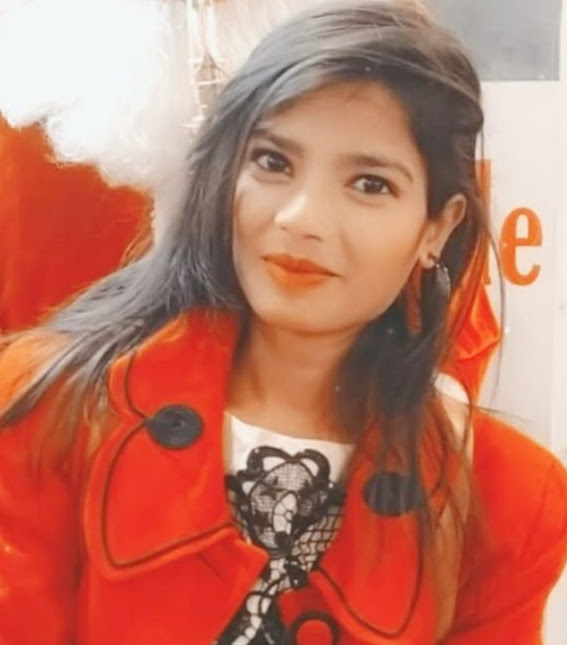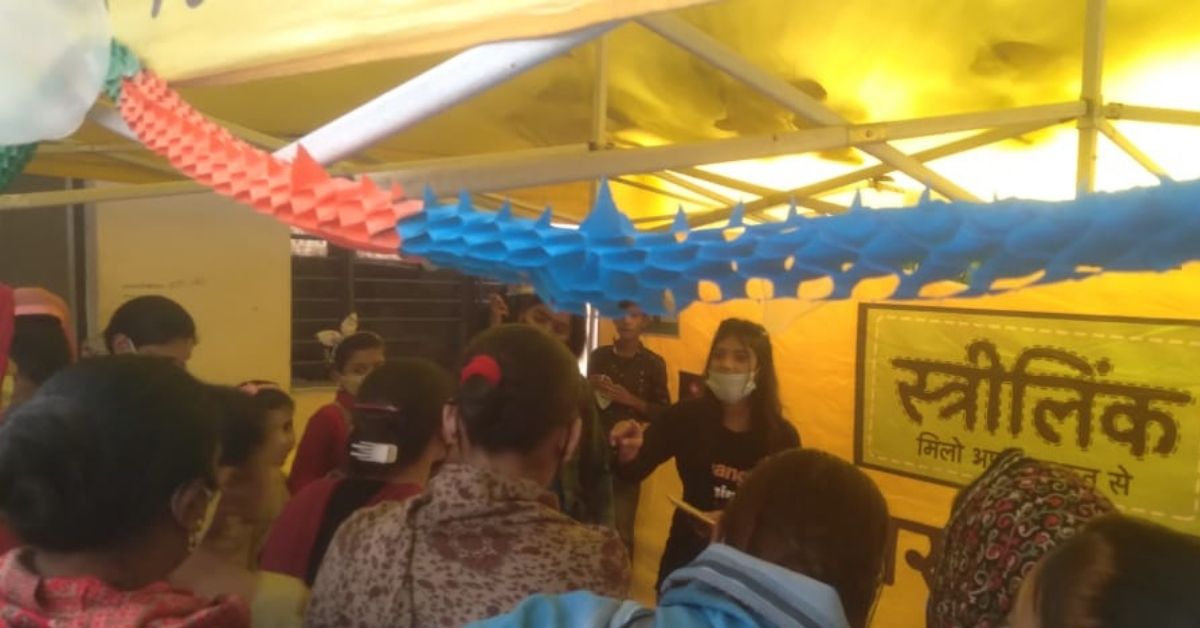This article has been published in partnership with Breakthrough India.
The 16 Days of Activism against Gender-based Violence is an annual international campaign held from 25 November till 10 December, organised by UN Women and kicked off by the Women’s Global Leadership Institute in 1991. To mark these 16 days, The Better India and Breakthrough India bring you stories of young women taking charge as catalysts of positive change in their towns, cities, villages and communities.
Even in the country’s national capital, several areas suffer from years of neglect and deterioration, resulting in poor living conditions for thousands of the city’s residents. This includes Sangam Vihar, which has the most number of unauthorised colonies in Delhi. Residents of these colonies suffer from lack of access to the most basic needs — water, roads, electricity and more. This, in turn, leaves women in the area even more vulnerable than they already are.
Ensuring safety of women living in such areas is a major challenge. However, a team of youth, organised by Breakthrough India, are fanning the winds of change with big and small initiatives.
Breakthrough is an organisation working to create a cultural shift and making discrimination and violence against girls and women unacceptable. It was founded by activist Mallika Dutt in 2000. The organisation began its journey with the release of Mann ke Manjeere: An Album of Women’s Dream, which talked about women’s rights through an album and a music video, as an experiment in using pop culture and media for social justice. Based out of the US and India, it aims to raise awareness and inspire action about gender-based violence through its initiatives and programmes.
Over the years, Breakthrough has been able to bring about lasting positive changes in their intervention areas — increasing the probability of girls being enrolled in schools, increasing the age of marriage in Uttar Pradesh, encouraging the reporting of cases of violence, transforming gender-regressive views of adolescents, and more.
Nirmala, a member of Breakthrough India, leads the program implementation in Sangam Vihar pocket to help address the area’s most pressing needs.
“Breakthrough has been working here for the last four years or so,” she tells The Better India. “It’s easy to assume that this community has access to all the facilities you might expect in a city like Delhi, but that’s quite far from the truth. So we began working with groups aged between 11 and 25 years, in a bid to involve the youth in bringing about the much needed changes in the lives of the people here. We’re engaging around 350 youth in various programmes and activities, such as skill training, issue-based training, and more. We also work with area-specific problems here, such as women’s safety.”
Among them is Nargis, an 18-year-old resident of Sangam Vihar, who has been working with the organisation as a youth volunteer for the last three years.

She is part of Breakthrough’s initiative Dakhal Do, which aims to encourage bystander intervention to inspire young people, especially those between the ages of 19 and 25, to intervene and call out violence against women and girls. It also aims to build on coordinated interactions amongst bystanders, along the lines of creating a ‘caring collective’. One of the core messages of this initiative is that violence is never a ‘private matter’, but a societal problem that needs urgent attention. With Rajkumar Rao as the brand ambassador, the campaign aims to spread this message by sharing information on violence against women, its impact, ways to intervene, etc.
A hasty lockdown resulted in many women being trapped with their abusers without any means of escape. This in turn saw a massive increase in the cases of domestic violence in the country. So when Nargis, the daughter of a housewife and a fruit seller, saw how women were becoming the first to bear the heavy brunt of the economic downturn, she decided to step in.
She says that the COVID-19 pandemic made life all the more difficult for women in the area. “Due to the pandemic, girls were unable to step out of their homes. Many people lost their livelihood, and financial hardships were resulting in increased tensions at home,” Nargis points out.
She adds, “I came to know of one such house, where the family was unable to find any work at all. They had two tiny kids, aged two and three. The stress to provide for everyone was high. They had no food at home, and the woman was under pressure to seek financial assistance from her parents’ home. The husband told his wife, ‘I don’t care how you manage, just get me money’. The wife was not working, and her own parents were extremely poor.”
One day, Nargis heard loud noises of fighting and arguing coming from the home. When she stepped in to inquire what was happening, the woman in the house revealed that her husband was physically abusing her due to the financial crunch. “That’s when I intervened,” Nargis says, “We came together and collected ration and some money for the family. I dipped into my own savings to help them buy ration.”
Not A ‘Private Matter’
A life of limited means and hardships has not stopped Nargis from letting the women in her colony know that they don’t have to lead a life of subjugation. She narrates another incident in which she took charge to help a woman escape severe violence at the hands of her husband.
Here too, the pandemic had left the husband without a job or any source of livelihood, and his family was buckling under a severe financial crunch. As a result, the woman, who is a domestic worker, was being subject to regular physical abuse and mental torture
When Nargis heard of this, she, along with her mother and sister, approached the woman and told her that if she was willing, she could file a case against her husband.
“We told her that we were from an NGO that could provide her the support she needs,” Nargis says. “We informed her about the women helplines that were available, and that we would be there to back her if she decided to report her husband. She told us that he used to beat her very badly, and that she was under immense pressure to give him dowry, despite the fact that she had six sisters who were unmarried, and came from a family with little to no resources.”
At first, her husband retaliated by saying that this was their own personal matter, and that neither the NGO nor Nargis had any right to interfere. “He told us, ‘“It’s none of your business. She’s my wife, and I can do whatever I want with her.’ Lekin maar pitayi gharelu maamla nahi hoti hai (But violence is never just an internal matter),” Nargis recalls.
Emboldened by Nargis’s support, the woman told her husband that if he were to lift another finger, she would take the matter to the cops. Her husband backed off, and she was able to move out of her husband’s home and return safely to live with her parents.
Nargis says that Breakthrough has provided many such opportunities to her and other youths to take charge of their lives. “I was of the same belief at one point in time — that if a woman is getting beaten up, it’s none of my business. But then Breakthrough came in, and conducted a variety of activities with us. We performed plays to make people understand our daily struggles, which people tend to just ignore. We conducted drives to distribute masks. We had campaigns where we painted messages of our cause on walls. We conducted tree plantation drives, wrote songs. Breakthrough has provided us with a number of opportunities.”

She adds, “The organisation trained me to understand that if I don’t step up to help someone in need, then one day, I might be left all alone when I need help as well. Samaaj ko badalne ke liye khud se shuruaat karni hogi (To change society, we have to start from ourselves). I know now that even a small step can go a long way.”
Sohini Bhattacharya, President and CEO, Breakthrough says, “At Breakthrough, we conduct different kinds of training programmes and workshops to help them understand gender discriminatory behaviours and their negative impact on the socio-economic and cultural potential of society. We amplify youth voices and leadership so that they can not only make choices about their own lives, but also about critical issues around gender equity, climate action and others.”
Presently, Nargis is pursuing a B Com Honours degree, and aims to continue social work as of now. “All I know is that if I get the chance to help someone, I will take it.”
Edited by Yoshita Rao
No comments:
Post a Comment